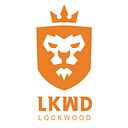How to get a job in social gaming?
We wanted to give our community an inside look into what it takes to work in social gaming. So we’ve teamed up with our very own recruitment team at Lockwood Publishing to give you the definitive guide into how to get a job in this amazing industry.
Sound good? Of course it does! Let’s take a look at what they had to say…
Q. In your experience, what is the best platform to use for looking for a job in social gaming?
LinkedIn is a great tool to find companies that are recruiting. A good way to really get on top of this is to connect with internal recruiters or producers at companies like Lockwood. They often post in relation to vacancies they’re looking to fill, and it’s never a bad thing to make connections.
If you use Slack, then there is a UKGamesIndustry slack that has people post jobs on a regular basis too.
You might also want to have your CV live on job boards — recruiters often look there for talent.
Q. What skills do you need to work in social gaming?
Depending on what department you want to work in, then the technical skills will be different. However, the soft skills required to work in social gaming are you need to be able to keep up with a fast-paced environment, mental agility to change strategy on the go if required, and a determination to constantly keep up with an ever-changing workload.
Q. Is it important to be good at playing video games?
Having great skills in a computer game is always a bonus! Chances are whatever game you are playing, someone at the games company you are looking to join also loves it. But making a game is very different to playing it, so it’s not as important as you might think.
Q. What should you study if you want to pursue a career in social gaming?
It depends on what you want to do. Courses like Computer Gaming, Games Art, Computer Science etc will all put you in a good place to start a career in video games.
Another option is to do courses in project management or games production in order to progress in the operational side of a games company.
Q. Do you have any tips for drafting an eye-catching CV?
A classic way to write a CV is clearly explaining the projects you have worked on and then how you were involved to ensure the completion of those projects. Also, having a skills section describing the technologies and software that you know is an easy way for anyone reading your CV to understand where you could add value to a company.
Expressing a bit of your personality is always a great idea to help you stand out. This can be your favourite game, or hobby or even a short snippet into your daily routine. If you have a very short story, told in a sentence or two to accompany it — then you could be known as the person who makes great spaghetti etc.
Q. Are cover letters, portfolios and resumes important for applying for jobs in social gaming?
CV’s and Portfolios are the best way for people to see what you are capable of and the value you can add to a company. A great cover letter is a nice personal touch too
Ideally, you want to be able to give the recruiter or the hiring manager a portfolio of work similar to the games the company makes. For example, once I looked at a portfolio someone had of personal projects done in Unity that had some very similar design and development elements to Avakin Life — it’s a really great moment when looking at an application when you have something reassuring that jumps out to you to say — this is a great candidate.
Q. Do you have any tips for preparing for a virtual or real-life interview?
Make sure you play a company’s latest game before you interview, so you can talk a little about what they work on — after all, it’s their games which will pay your wages.
Don’t lie. If the games they make aren’t necessarily your favourites then just say so — but also be clear why you’d still like to work on those titles.
In a virtual interview, make sure, if possible, that you won’t have any distractions or people walking into the room halfway through as it can be distracting. Try to reduce any background noise as well.
For a face-to-face interview (if we ever get to have these again), then show your personality and express a keen interest in the people interviewing you. They are trying to gauge whether they want to work alongside you day in day out too.
Most of all, be yourself. If you’re the real ‘you’ on the day, then both sides will know whether the culture fit will be a good one — and if it isn’t then the job really isn’t for you. Things have a way of working out, and when one door closes another often opens — make sure it’s the real you ready to walk through, because you’ll want to find your tribe on the other side.
If this is getting you thinking about your dream job in social gaming, why not take a look at our recruitment page and put those dreams into action…
